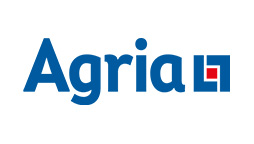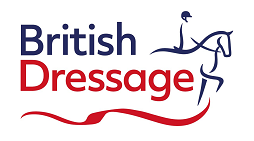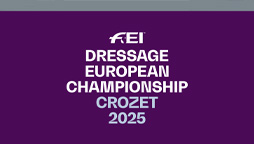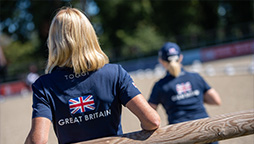Dressage
This year's FEI Dressage European Championship will head to Jiva Hill in Crozet, France for the first time in the event's history. Taking place from 27–31 August, this is the 32nd edition of the competition, which has been running since 1963. A total of 21 nations feature on the nominated entries list, with 14 of those submitting enough entries to be included in the team competition.
While reigning European Champion Jessica von Bredow-Werndl will not be returning to defend her title, following the retirement of TSF Dalera BB, the silver medal-winning combination of Lottie Fry and Glamourdale will be looking to do one better this year. Great Britain are also the current title holders, with Carl Hester and Fame returning to defend the team gold medal they won in 2023 alongside Lottie and Glamourdale. Silver medallists Germany and bronze medallists Denmark will also be on the hunt for a top placing.
The venue
Jiva Hill Stables combines top class facilities with a breath-taking location. Built in 2006 as part of the Jiva Hill Resort near the French-Swiss border, not only does the 50-hectare estate have Mont Blanc as its backdrop, but recent upgrades means that it can boast world-class footing across its training arenas, an indoor arena with air conditioning and ample grazing areas for horses. It has played host to international competitions since 2017, including CDI5* competitions from 2023.
British squad
- Charlotte (Lottie) Fry with Van Olst Horses and her own Glamourdale and groom Richard Hauwaerts
- Andrew Gould with Tatiana and Max Skillman’s Indigro and groom Natalie Campbell
- Carl Hester with Fiona Bigwood, Mette Dahl and his own Fame and groom Lucy Scudamore
-
Becky Moody with Jo Cooper and her own Jagerbomb and groom Kim Masson
See the full list of definite entries
daily schedule
- Tuesday 26 August: First horse inspection (08:30 CET / 07:30 BST)
- Wednesday 27 August: Grand Prix day one (10:00 CET / 09:00 BST)
- Thursday 28 August: Grand Prix day two and team medal ceremony (10:00 CET / 09:00 BST)
- Friday 29 August: Grand Prix Special and individual medal ceremony (10:00 CET / 09:00 BST)
- Saturday 30 August: Rest day for all qualified athletes
- Sunday 31 August: Grand Prix Freestyle and individual freestyle medal ceremony (11:30 CET / 10:30 BST)
Latest news
Stay up to date with everything that's happening in Crozet here, or via our Facebook and Instagram feeds.
You can also stay up to date via British Dressage's Facebook and Instagram feeds.
Results and timings
All results and timings are available to view via World Sport Timing. The start lists will be updated after the first horse inspection takes place on Tuesday 26 August.
Competition Structure
Dressage is a test of horse and rider's ability to perform a range of movements in harmony, across the gaits of walk, trot and canter. Seven judges mark the test from different points around the arena, which measures 60m x 20m. At a World Championships, national federations can put forward teams of three or four riders, with the three highest scores counting towards the final score. Nations unable to put forward a complete team can enter up to two combinations to compete as individuals. All athletes competing in the team competition are also eligable for individual honours.
Horse inspections
All horses are examined on arrival and must pass a horse inspection by the ground jury and a veterinary delegate prior to the start of competition to ensure that they're fit to compete. All horses contesting the individual final must pass a second horse inspection on the morning of the rest day.
arena familiarisation
The day before competition starts, each nation takes part in an arena familiarisation session in the main arena, in order to help their horses become acclimated with the environment. The arena is set up exactly how it will be during competition, including all dressings and filming equipment. Nations will be allocated time slots for their familiarisation session, based on a draw process.
Grand Prix (DAY ONE and two)
The Grand Prix test is used to decide the team medals and act as a qualifier for the individual rounds. Combinations perform a set test of 33 movements – the judges mark most of the movements out of 10, apart from coefficient movements, which score double. Additional marks are also given at the end for the general impression, which take into account the harmony of the test, the rider's position and seat, and their use of the aids. The scores from each judge are then added up and an average taken, which is given as a percentage score. To decide the team medals, all four riders will ride the test, but only the three best scores are counted – the team with the highest overall percentage claims the team title.
Grand prix Special (DAY THREE)
The top 30-placed riders from the Grand Prix, including those tied for 30th place, then go forward to compete the Grand Prix Special, which is a predetermined test with 36 movements and a higher degree of difficulty than the Grand Prix. The scoring system is the same as in the Grand Prix. No scores are carried forward and, if qualified, all four team members can contest this round. The combination with the highest percentage score wins the individual title.
See the Grand Prix Special test
Grand Prix Freestyle (DAY Five)
After a rest day, the top 18 combinations from the Grand Prix Special compete in the Grand Prix Freestyle (also known as the kür). The Freestyle test sees combinations ride a bespoke floorplan set to music of their choice, based on a list of required movements, with additional marks given for artistic merit and degree of difficulty. If all four athletes from one nation are in the top 15, only three may participate in the Grand Prix Freestyle. No scores are carried forward from the Grand Prix Special and the highest percentage score takes the title.
See the complusory movements for the Grand Prix Freestyle
How to watch
All the action will be available to stream live with English commentary on FEI.TV via a subscription to ClipMyHorse.TV. Click here for the full schedule.
At this time, BBC Sport has not confirmed if they'll be showing any coverage of the event. If this changes, this page will be updated accordingly.
Keep an eye on our social media feeds for the ride times of each of our British combinations.
Ticketing
Tickets are available to purchase through the online box office, starting at 25€ for competition days and 20€ for the displays on Saturday (non-competition day). If you're planning to visit the event, further information is available here.



